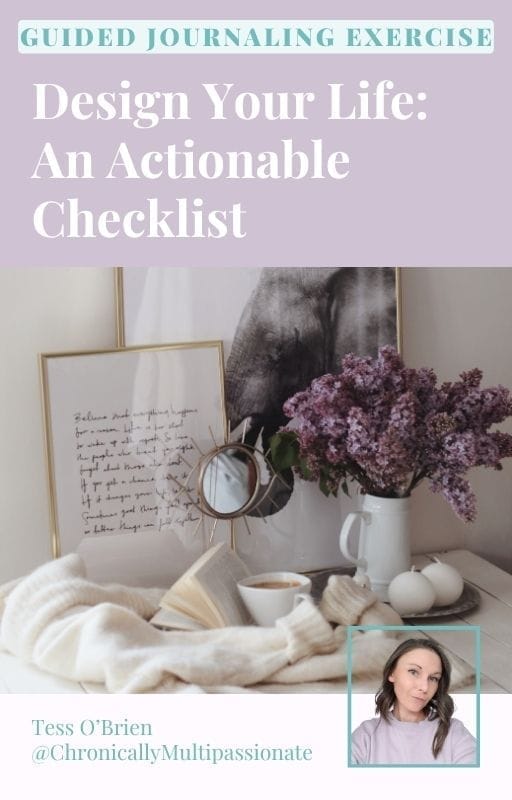www.createalifeworthliving.ca
🍁
The Blog is Currently Undergoing a Refresh! Stay Tuned for Exciting Updates! ✨
How to Set & Actually Achieve Goals When You Have a Chronic Illness
By Tess O'Brien
DISCLOSURE: We may receive compensation for links to products or services on this website. As an Amazon Associate, we earn from qualifying purchases at no additional cost to you. Read my full Affiliate Disclaimer here.
Why Traditional Goal-Setting Doesn’t Work for Chronic Illness Warriors
When you’re living with chronic illness, traditional goal-setting advice can feel hopeless and frustrating—like trying to climb a mountain when you haven’t even hiked in years.
It seems like all we see is healthy, seemingly “perfect” people telling us how much they’ve accomplished and how they’re setting all these big goals for the year, and we’re just here trying to survive our days without having a symptom flare-up or an emotional breakdown. Not to be dramatic, but I understand the struggle all too well. Add to this being a single mom and still trying to come to terms with multiple diagnoses and accept the limitations that my chronic conditions have created, especially when they are ever-changing and fluctuating, it can be extremely challenging.
So the idea of setting goals might seem a little pointless when you’re struggling, but I want to encourage you to look at it a different way. We need to be heading towards something to keep ourselves going. We need to keep trying and striving and making progress even in the smallest of ways. We need to remain hopeful, or else all can feel lost, and I won’t accept that—not for me or for you!
How I Discovered a New Way to Set Goals That Work with My Body
Over the last few years, I came to the realization that I was living in a constant state of panic because I was trying to achieve too many things all at once and not taking the gravity of my situation into account. I was gaslighting myself, expecting to be able to perform the same as someone without my specific challenges—an approach that led to massive disappointment and burnout. Not to mention the very serious toll it took on my physical health.
Eventually, I had to confront reality. Not only was I overloading myself trying to do too many things, but I was also pursuing goals that were completely wrong for me altogether. That’s when I realized I needed to create a system that worked with my body and nervous system instead of fighting against them.
This shift wasn’t the result of one dramatic moment but a series of quiet realizations. Each whisper in my mind told me, “This isn’t working.” I remember sitting in bed one night after a particularly tough day, scrolling through social media and seeing all these "perfect" people crushing their goals. I felt so defeated, like I was falling further behind with every breath.
Then it hit me: I was setting myself up for failure—not because I lacked drive, but because I wasn’t being realistic about how I was trying to achieve my goals. I wasn’t being fair to myself. How could I expect to thrive while I was trying to measure my success by someone else’s standards—someone who didn’t have to deal with chronic illness, the exhaustion of single motherhood, or the weight of constant unpredictability?
I realized I couldn’t keep pushing through sheer willpower. My body had been sending me signals for years—urging me to slow down, to listen, to be kinder to myself. I finally decided to stop ignoring those signs.
That night, I grabbed my journal and wrote down two life-changing questions:
1. What truly matters to me right now?
2. How can I make progress without sacrificing my health or peace of mind?
Answering those questions shifted everything for me. My goals didn’t need to be grand or bold to be meaningful. They just needed to fit where I was in life—messy, unpredictable, but still full of possibility.

Image text- “Stop trying to grade yourself using somebody else’s scorecard.”
My 6-Step Strategy for Setting Achievable Goals with Chronic Illness
Once I accepted that my old way of setting goals wasn’t serving me, I knew I needed to approach things differently. The key wasn’t to stop dreaming or striving—it was to create a system that honored my body, my energy, and my reality.
I’ve since developed a simple, sustainable strategy that helps me set and actually achieve goals without sacrificing my well-being.
Here’s what I started doing differently:
1. Focus on Micro-Steps
Instead of setting lofty, overwhelming goals, I broke everything down into tiny, manageable steps. I call these “micro-goals.” On a good day, I might tackle three; on a challenging day, even completing one feels like a win.
For example, instead of “write a blog post,” my micro-goals might be:
Brainstorm title ideas.
Write the introduction.
Outline the main points.
This way, I’m still moving forward, even if progress feels slower than I’d like.
The first step is to stop focusing so far out on the big picture and instead break your goals into the smallest possible actions. Big dreams are great, but they’re achieved one tiny step at a time. Ask yourself: What’s the one thing I can do today to get closer to my goal? Make it so small it feels impossible to fail.
2. Build Flexibility into the Plan
Rigid deadlines just don’t work when your health is unpredictable. I started giving myself flexible timeframes instead of hard deadlines. If a task takes longer than I planned because I need to rest, that’s okay—it’s all part of the process.
Now, I create a weekly "priority list" instead of a daily to-do list. This gives me the freedom to adjust my tasks based on how I’m feeling each day.
Life with chronic illness is unpredictable. Some days, you might wake up with the energy to tackle a project head-on; other days, just getting out of bed feels like a win. Give yourself permission to adjust your plans as needed. This isn’t about quitting—it’s about honoring your body and working with what you’ve got.
3. Reject Comparison
It doesn’t matter what other people are doing or what anyone else thinks—I’ve realized I can’t compare myself or my results to those of people who don’t walk in my shoes. Their pace, achievements, and circumstances are theirs; mine are uniquely mine.
Comparison is the thief of joy, and I’ve chosen to focus instead on my own progress and growth, no matter how small it may seem.
4. Prioritize What Truly Matters
I stopped trying to do everything all at once. Instead, I got clear on what really matters to me and my goals. This meant saying “no” to things that didn’t align with my values or my vision for the life I want to create.
For me, that looks like focusing on:
Building my blog and content business.
Being present for my son.
Prioritizing my health and well-being.
Anything outside of these priorities? It can wait.
When energy and resources are limited, it’s crucial to focus on what’s genuinely important. What brings you joy? What aligns with your values? Let go of the pressure to do everything and instead choose to do what matters most.
5. Celebrate Progress, Not Perfection
One of the hardest lessons I’ve learned is that progress doesn’t have to be perfect to be meaningful. I’ve started celebrating even the smallest wins—whether it’s gaining just one single subscriber, writing a paragraph, organizing my workspace, or simply showing up on a tough day.
By shifting my focus to progress, I’ve let go of the guilt that used to weigh me down.
Every small win is a step in the right direction. Whether it’s completing a single task or simply showing up for yourself, celebrate your progress. It all adds up over time, and it’s worth acknowledging.
6. Practice Radical Self-Compassion
This has been the most transformative part of my journey. Whenever I catch myself being critical or impatient, I ask: Would I talk to a friend this way? The answer is always no.
I’ve learned to treat myself with the same kindness and compassion I’d offer someone else. On bad days, I remind myself that rest is productive. On good days, I celebrate what I’m able to accomplish.
Finally, give yourself grace. Chronic illness is hard enough without adding self-criticism into the mix. Treat yourself with kindness, and remember that rest is just as productive as action when it’s what your body needs.

Thriving on My Terms: The Power of Goal-Setting That Honors Your Needs
Adopting this new approach to goal-setting hasn’t just changed how I plan my life—it’s completely transformed how I live my life.
By embracing micro-goals, flexibility, and self-compassion, I’ve learned to thrive within my limitations instead of fighting against them. It’s not about how much I can accomplish in a day or how “productive” I appear to others. It’s about aligning my actions with my values and celebrating the life I’m building, one step at a time.
Here are some of the most meaningful changes I’ve experienced since shifting my perspective:
A sense of empowerment: I’m no longer defined by my chronic illness. Instead, I’m designing a life that works with it, not against it.
More energy for what matters: By focusing only on what’s truly important, I’ve freed up the mental and emotional energy I used to waste on guilt, shame, or comparison.
Deeper self-acceptance: I’ve stopped apologizing to myself (and others) for not being able to do it all. My worth isn’t tied to my productivity—it’s inherent in who I am.
How to Redefine Success and Set Goals That Work for You
If you’re living with chronic illness—or any challenge that makes traditional goal-setting feel out of reach—know this: there is another way.
You don’t have to follow anyone else’s blueprint. You don’t have to match anyone else’s pace. And you don’t have to wait until you feel “better” to start making progress.
The key is to create a system that’s uniquely yours. One that prioritizes your well-being, honors your limitations, and allows you to celebrate every step of the journey.
Ready to Take the First Step? Let’s Do This Together
Are you ready to start setting achievable goals that truly work for you?
Here’s your next step: Take a moment to reflect on your priorities. What matters most to you right now? Write it down. Then, think about one small, actionable step you can take this week to move closer to your vision.
If you need more guidance, make sure you stay tuned for more tools and prompts as I have something extra special coming soon that will help you create a plan that aligns with your unique life and goals. So don't forget to save this post for later!
Follow along with the blog for ongoing support and inspiration as I continue laying out the roadmap for you one post at a time!

Hey I'm Tess!
I'm a chronically multi-passionate Canadian website & brand designer, writer, and digital marketer with an obsession for all things life design, entrepreneurship, and creativity.
I'm on a mission to help dynamic entrepreneurs & educators define their vision, create their brand, and build online income streams that help them live life beyond survival!

The Latest on the Blog
Want to hear about my next projects? Subscribe to my newsletter
Don't worry, I hate spam too! I will never spam you or sell your information. You can unsubscribe from my emails at any time!
Redesigning my chronically multi-passionate life and sharing my thoughts along the way.
Design a life you love!
Resources
© Tess O'Brien. All Rights Reserved. Republishing Of Content Without Permission Is Prohibited.
Privacy & Terms / Site Design by TOC / Powered by SIO






